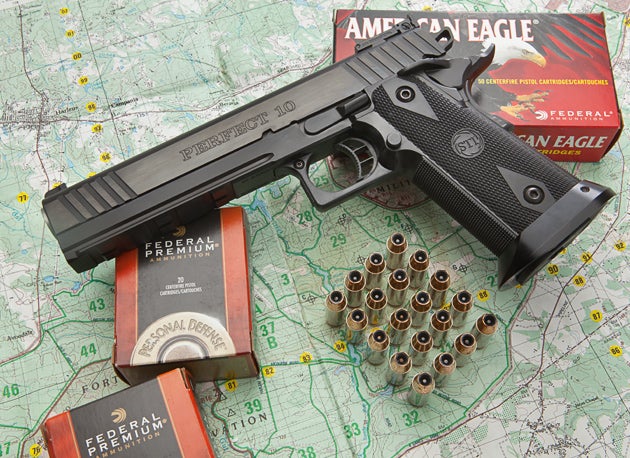Diligentia, Vis, Celeritas means Accuracy, Power, and Speed
Oleg Volk 09.04.13

Recently, my friends and I taught a new shooter aged 17. In three hours, this slightly built girl went from shooting subsonic .22 from a suppressed pistol to ringing steel and knocking down small tree stumps at twenty paces with a Kimber in 10mm Auto. Watching her shoot this powerful gun with easy competency was fun. Shooting high-power loads from a subcompact Glock 29 I used to own gave me the memory of great torque and recoil, yet a teenage girl shot the same caliber with no great effort. How could that be? Curious about the increase of power from .22 subsonics to 10mm, I looked up the ballistics by brand and found something curious: the mighty 10 isn’t always as mighty as I remembered it.
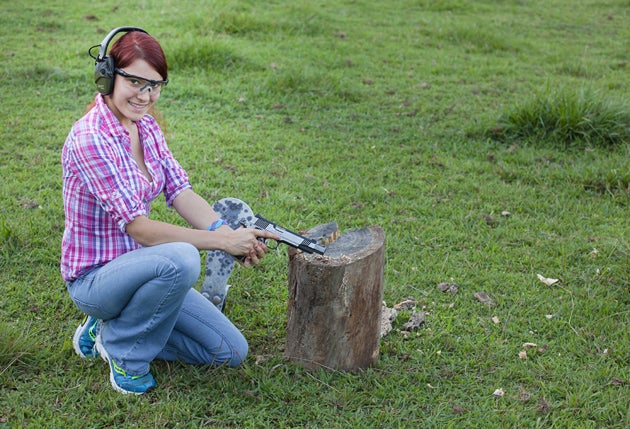
10mm Auto was specified by Jeff Cooper and introduced by Norma for Bren 10. The original load was 200g at 1300fps. Colt later offered Delta Elite in that caliber, and Smith & Wesson model 1076. By the time Glock came out with the full size G20 and subcompact G31, the round branched in three directions.
Due to the excessive recoil for an antipersonnel round, Smith & Wesson developed a “10mm lite” .40S&W which used slightly lighter bullets at lower velocity. Several manufacturers continued to offer “10mm Auto” ammunition but downloaded them to about the level of hot .40S&W, 180g at 1050fps or so. Smaller ammo makers continued to make full-power ammo with bullets optimized for penetration. Wildly excessive for stopping human attackers, they were adequate for most North American ursine and feline predators. The caliber is particularly popular in Alaska and used in both autoloaders and revolvers with moon clips. Because of its efficiency, science fiction writers like David Weber and L.Neil Smith postulate that 10mm Auto would remain a viable dueling and self-defense caliber even centuries into the future.
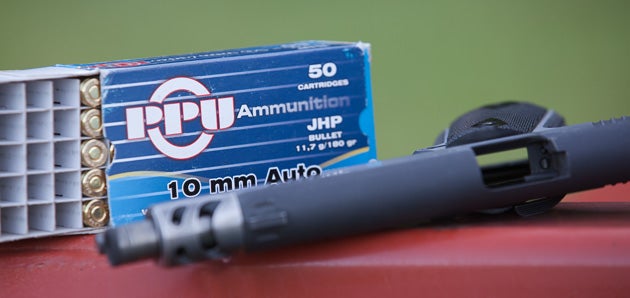
Looking at the two Federal loads, American Eagle ball and Hydroshock hollow points, I see familiar numbers: 185g at 1030fps. That’s almost identical velocity to 185g 45ACP loads. The sectional density similar to the 230g load. With greater typical expansion and similar penetration, these “social” 10mm cartridges closely approximate the terminal ballistics of 45ACP at the cost of slightly higher chamber pressure. The advantage of 10mm is greater magazine capacity, 14 rounds instead of 11 in a double-stack gun, or 17 to 14 in extended magazines. 180g Underwood hunting load develops about 1330fps to the Federal defensive load’s 1030, but at the cost of greater muzzle flash, noise and slower follow-up shots. In the Accuracy-Power-Speed, full-strength 10mm gives up speed for power that’s excessive for the thin-skinned hominid opponents we face in the urban jungle.
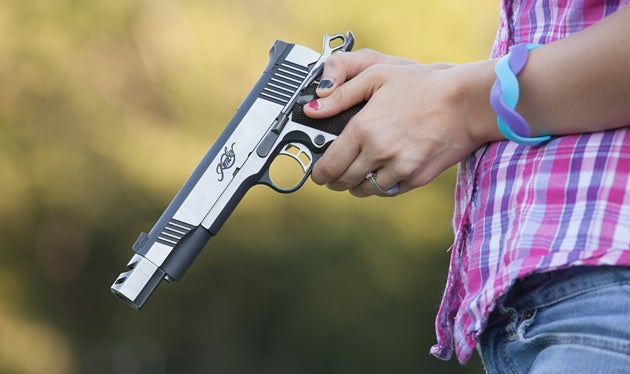
The Kimber Eclipse II pistol we used was compensated for comfortable outdoor shooting. The STI “Pefect 10” (of Monster Hunter International fame) I also had on hand handles the recoil by shifting some of the weight forward into the full railed underlug, and wrings out the most of the load’s performance through the 6″ barrel. And extra inch makes little difference for concealment, none for open field carry but reduces flash and increases sight radius. Full 17+1 of even the lighter “social” 10mm cartrdiges makes it about as potent a self-defense tool as can fit in a holster comfortably. Thanks to the composite polymer and steel frame, it weighs no more than a single-stack longslide 1911.
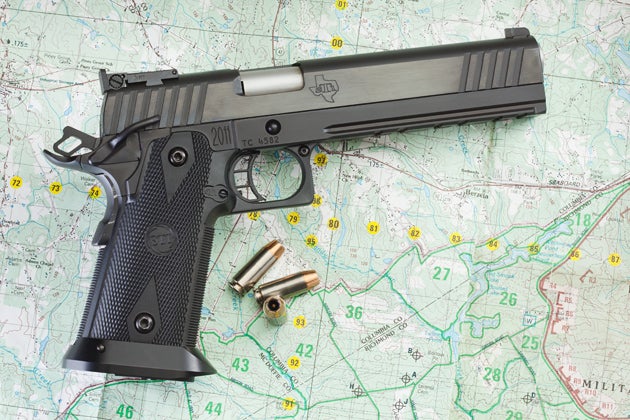
Although factory 10mm Auto ammo usually costs more than 40S&W, during the recent shortages it was more available than the mainstream calibers. For reloaders, the cost difference is minute. The advantages are accuracy and power options — the same gun can be loaded for hominid or bear and used to good effect on either.
